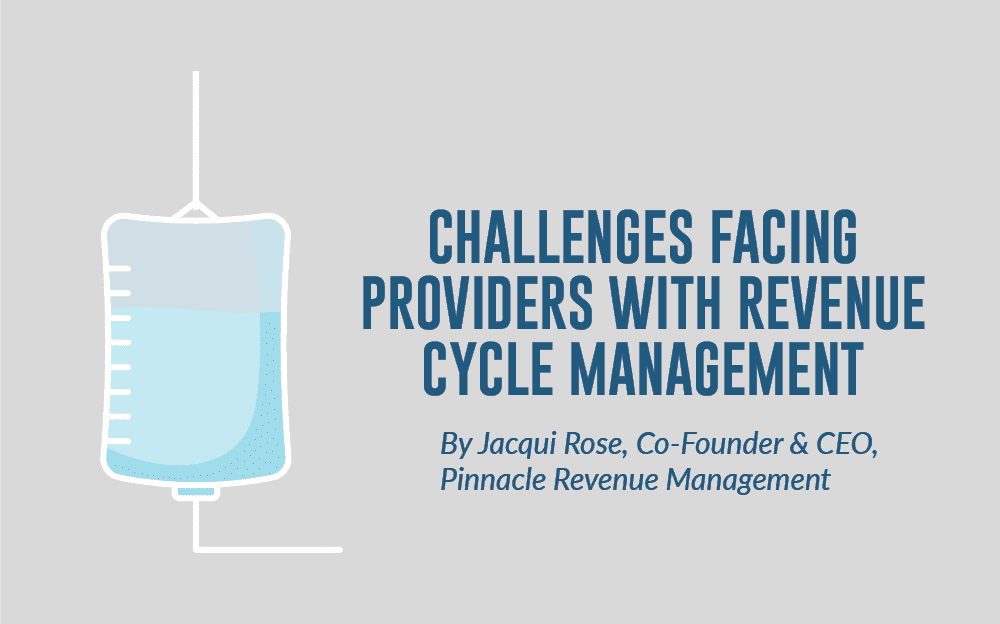How Hard is it for Infusion Centers to Handle their Own Billing?
I get this question a lot, and the answer is really complex. There are so many intricacies in the world of infusion billing, and the thought process might not always seem logical. We face several steps to get a claim coded, submitted, and paid in full. This blog post is intended to offer a glimpse of what challenges infusion providers face in managing their own billing processes and how common pitfalls can be avoided.
The Intake Process
The intake process begins with insurance verification. It is important to understand that the most effective method of insurance verification is over the phone. Online verifications are never sufficient and can often lead to denied claims. Infusion providers have one chance to get it right as many insurance companies will not redo an authorization. Providers need to be sure that their intake department has the right tools to do their job, as well as an understanding of the questions they need to ask the patient up front.
Aside from Medicare and Medicaid, many plans have their own medical policies. Time and time again, these policies are not reviewed, orders are not current, or diagnoses do not qualify. Some plans require the provider to know that conventional medications fall under a “fail first” stipulation (see NICA’s education module about step therapy here) before specialty medications are deemed medically necessary. Other plans may have a preferred drug list (also known as a formulary), and patients must first try a specific drug before their prescribed drug will be approved. I could go on and on about the nuances of each plan, but the bottom line is that the intake team needs to be prepared with their questions, and they should spend ample time researching the intricacies of each plan.
Documentation
Documenting a patient’s visit is just as crucial as the quality of care the patient receives. Providers should pay close attention to documenting medical necessity, the type of drug, the dosage, the type of administration/location, the start and stop times for each injection, and more. Often, the reason for denied claims is due to missing medical records. To avoid denials, provider offices must keep record of notes containing detailed specifics of treatment services. As the saying goes, “If it was not documented, it was not done.”
Billing and Coding
Where do billing and coding fall in the hierarchy of infusion treatment? There are so many variables to analyze and questions to answer. My office often refers to a helpful article published by WeInfuse titled “The Confusion of Infusion Billing”
There are several items to consider when it comes to coding our claims:
- What medication or medications were infused?
- What was the route of administration?
- How long was the infusion?
- Was there a secondary infusion?
- Was there waste?
- Do I need modifiers, CPT code, or a HCPCS code?
That is just a snapshot. A lot of thought and understanding has to go into the drugs regimens. Billers need the expertise to be able to review the documentation and ask questions when something may not look right or may be missing. Unfortunately, many of these high cost drugs will pend or deny for one reason or another. We will save denials and decide how to manage them for another time. Like all other departments, the expertise, commitment, and efficiency of this team is an extremely important piece of the puzzle. Just when we think we have it figured out, something changes or there is a new drug on the market. With all these moving parts, infusion offices need to remain vigilant and educated.
Optimizing Your Revenue Management Process is Key
With the rising cost of drugs, closing margins, and the overall changes in the drug and healthcare industry, providers need to be sure they have a knowledgeable team who can support their buy-and-bill strategy. Clear and organized policies and procedures should be in place for all departments. Additionally, compliance and auditing of these departments – especially billing – is highly encouraged. This is a team effort, and everyone plays an important role in ensuring correct reimbursement for these high-cost drugs. Keep your employees educated and recognize them for their hard work.
Written by: Jacqui Rose, President & CEO of Pinnacle Revenue Management





